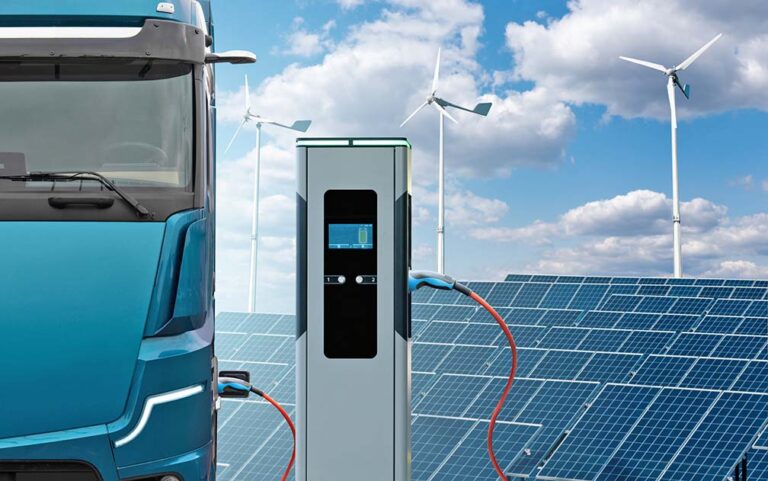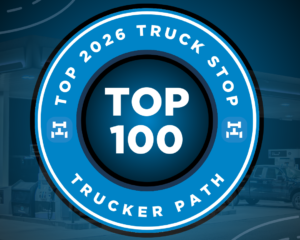REMOTE, Colo. — Colorado’s Air Quality Control Commission has adopted new rules to promote access to zero-emissions trucks.
The state health department’s Air Pollution Control Division developed the rules and proposed them to the commission following extensive public engagement, according to a news release.
Colorado joins other states, including California, Massachusetts, New Jersey, New York, Oregon, Vermont and Washington in copying EPA-approved regulations from California’s so-called Advanced Clean Trucks strategy.
Colorado’s new measures will:
- Give Colorado businesses and consumers more options when buying zero-emission trucks.
- Reduce maintenance, operating, and fuel costs for zero-emission truck owners.
- Dramatically reduce greenhouse gas emissions, like carbon dioxide, that cause climate change.
- Reduce air pollution emissions, like nitrogen oxides and particulate matter, that lead to the formation of harmful ground-level ozone pollution.
“We’re always looking for new ways to address environmental and health inequities that still impact many Colorado communities today. By encouraging more zero-emitting trucks on the road, we take another step towards realizing clean air for all Coloradans no matter where they live,” said Michael Ogletree, director of the Air Pollution Control Division. “We’re proud of our part in developing these policies that will benefit Colorado’s air quality for years to come and save Coloradans money in the long run.”
The independent commission unanimously approved three rules after a multi-day hearing on Friday, April 21. The hearing included opportunities for public comment and consideration of alternate proposals from other organizations.
Ultimately, the commission voted to adopt the two most impactful rules as the division proposed them, which include the Advanced Clean Trucks rule and the Low NOx Truck rule.
The Advanced Clean Trucks rule sets a sales standard for manufacturers to make more zero-emission trucks available in Colorado. It takes effect for trucks starting with model year 2027, and the sales standard percentage grows incrementally through model year 2035.
This rule will only apply to manufacturers of medium-and heavy-duty trucks. It does not impact farming equipment or off-road construction equipment. The sales standard does not require Colorado businesses or consumers to purchase a zero-emission truck.
The Low NOx Truck rule sets more stringent air pollution emissions standards for heavy duty vehicles, improves testing requirements for engines, and extends warranties. It takes effect for trucks starting with model year 2027.
NOx refers to nitrogen oxides, which form ground-level ozone pollution when they react with other pollutants in heat and sunlight. Most trucks run on diesel, which generates even more nitrogen oxide emissions than vehicles that run on gas. The rule will lower the nitrogen oxide emissions standard for new vehicles by 90% compared to the current standard.
The commission made some changes to the division’s proposal for the last rule, the Large Entity Reporting rule. It will still only apply to operators with a fleet of 20 or more trucks.
As the Public Service Company of Colorado suggested, the division will collect this information twice, instead of once. The first reporting deadline is November 30, 2024. The second reporting deadline is December 31, 2027. As the Environmental Justice Coalition suggested, the division will also make all of this data publicly available.
The division proposed the clean trucking rules to help meet goals in the Colorado Greenhouse Gas Pollution Reduction Roadmap. The roadmap directed the division to develop a holistic Clean Truck Strategy and to consider proposing these rules as part of that effort.
“Zero-emission vehicles can lead to savings on maintenance and fuel costs for owners,” Colorado officials stated. “Cleaner vehicles also offer savings through avoided health impacts and avoided climate impacts. The air division completed a Final Economic Impact Analysis that shows total savings could be more than $15.6 billion through 2050.”
To help cover up-front costs, the division recently opened two grant programs for applications to fund clean vehicles.
The federal Inflation Reduction Act created significant incentives for zero-emission trucks. These include up to $40,000 off the purchase price of clean trucks through a new federal tax credit.
Colorado is also positioned to access significant federal funding to assist in deployment and reduce up-front costs for zero-emission trucks.
The Trucker News Staff produces engaging content for not only TheTrucker.com, but also The Trucker Newspaper, which has been serving the trucking industry for more than 30 years. With a focus on drivers, the Trucker News Staff aims to provide relevant, objective content pertaining to the trucking segment of the transportation industry. The Trucker News Staff is based in Little Rock, Arkansas.












How does this address anything real for a business owner? First off if the economy is in the toilet as a business do you think I have money to invest in new expensive and unproven technology that will cost me more to operate than what I have now? Next freight rates. Nobody can make money at these rates driving a truck that cost much more than what they’re operating now. Next the technology itself. It isn’t ready! Truckers big or even six wheeler can’t wait around for charging. They also cover too many miles in a day and these EVs don’t have the range. Take my FedEx driver. Just a small delivery van. He has to drive 80 miles one way just to bring me a box. That’s 160 round trip. If his vehicle was an EV he would barely be able to do that ONE box. Now take his entire route. I won’t even get into 6 wheelers and semi trucks and what that means for range.
The best part is if the world just planted more trees we wouldn’t have to change anything. Not my thought. It’s backed by science and it’s not that many trees.
Do politicians live in the real world??? I don’t think so. Time to remove these cultists from office before they put the world into a global depression.
It’s 7 billion vs maybe a thousand of bureaucrats globally pushing this stuff. Decide now.
lets face it the “THEY” made plans we just included….If you think the Know how to address the laws they impose to the industries they them selves depend on …to get their every substance…than on to top of all this they make no accommodation for the equipment to be parked over night….before they make LAWS that effect everyone they claim to CARE for why don’t just pay for the trucks instead of making lose our money in a DREAM of their making ….to work out the Kinks in the equipment….we are just in compliance to their DEMANDS …as if the driver is the blame to all global warming …{ not climate change …because weather always changes,…… dumb ass’s}